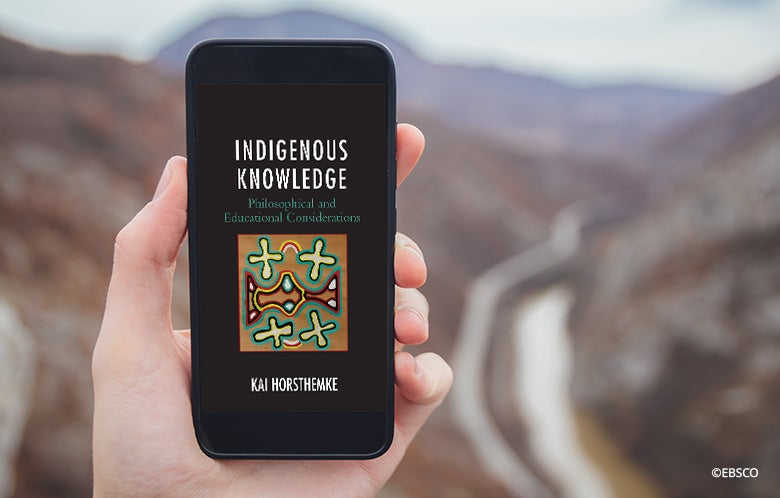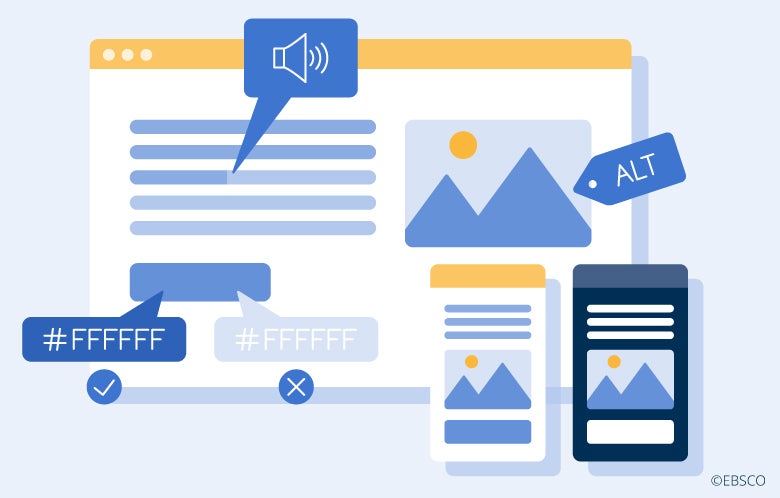An open access (OA) e-book can be read or downloaded by anyone, anywhere, immediately upon publication without needing to pay or log in. OA content supports an open, equitable system of knowledge. There are several factors to consider when adding open access e-books to your library’s digital collections:
1. Quality of the Hosting Platform
Does your library have an existing relationship with the source and are your users familiar with it? Has the source been in business for an extended period and do they offer a stable and reliable platform? It is important for libraries to add OA content that can be integrated with their existing workflows and processes. Often existing OA content is scattered across many different websites and platforms making it hard for libraries to facilitate discovery by end users, and creating a disjointed research experience for users. Also, depending on the source, some OA content providers discontinue the services or go out of business thus resulting in loss of access to important content as well as an inconsistent user experience.
2. OA Format and Functionality
Are multiple ways of reading supported by your OA platform? Does the OA provider offer access to read the full text online, EPUB for online reading and download, and full e-book downloads in addition to downloading chapters? Some platforms only support chapter-by-chapter downloads and do not offer EPUB formats or full text to read online. Although a PDF is a widely recognizable format it does not always offer users the best possible reading experience.
3. Integration/Discoverability
Would the OA e-books show up alongside your library’s existing collection of e-book and database content on the end user-facing platform? Are you able to determine when an e-book is available as an open access e-book and whether your users currently have access to it via library systems? Many sources of OA content are not integrated with a library’s existing workflows resulting in frustration and wasted time determining whether certain titles are OA and the inadvertent purchase of a print version due to poor visibility in library ecommerce sites and system.
4. Accessibility
Is the OA e-book content and hosting platform accessible to all readers including those with vision impairments? Does the source offer the ever-accessible EPUB format? Look for sources to verify that their collections are covered in their VPAT (Voluntary Product Accessibility Template.) An OA source VPAT should outline key accessibility requirements and provide a structure for the source to outline the level of compliance and give explanatory remarks. This enables libraries to determine if all users will be able to access the OA e-books offered and discover the level of commitment the source has to importance of accessibility. In addition, the EPUB format is a better experience for users with accessibility needs. EPUB is HTML-based, which provides a superior experience to PDF for screen readers as the text is always available to assistive technology, and reflows, which is critical for effective zoom.
5. Preservation
Does the source preserve their OA e-books to ensure that libraries will have access to them in the long-term? Preferably through a secure, non-profit, reliable third party? It is critical that libraries select a source that effectively preserves and archives all OA content to ensure uninterrupted, perpetual access. So even if the OA source ceases to be in business or discontinues actively offering OA content the library would still retain access.
6. Usage Data
Would your library be able to see metrics and usage data for OA e-books, in both COUNTER and more detailed formats? Can you easily see usage of OA titles for use in collection development and funding decisions? In order for your library to make sound decisions about e-books it is critical to be able to see the metrics for OA e-books in the same place as non-OA e-books. Libraries are being asked to do more with less and no one wants to search multiple sources for the information.
7. MARC Records
Can your library easily download full OCLC MARC (Machine Readable Cataloging) records and/or activate the OA collections for discovery in leading discovery services? To save your library staff time it is important to select a source that offers the downloading of MARC records from the same place you normally download them with full and robust cataloging for discovery. Depending on the source of the OA content your library may have to load MARC records from multiple places which can result in inconsistent metadata and hamper discovery.
The newly released EBSCO eBooks™ Open Access Collection is a growing collection of open access e-books from the world’s most trusted university presses and scholarly publishers. This collection offers libraries many benefits and is available at no cost on the EBSCOhost® platform. All OA e-books in the collection are available in full text and for any title with an EPUB version available, offering a full-featured, browser-based e-book viewer. Users can benefit from the accessibility features of an EPUB without having to download the title. Libraries can activate the collection in ALMA and WMS to facilitate discovery, and this collection complements other EBSCO efforts to focus on and support “open”, including Faculty Select, which connects faculty with OA e-books, textbooks, and other open educational resources.
Other benefits of the collection include:
- Covered in the EBSCO VPAT and discoverable in the new EBSCO Mobile App, the library industry’s most accessible app ensuring ease of use across platforms.
- DRM-Free content, available on the open web for users without a library affiliation to maximize usage, reach, and impact of these OA titles.
- Preserved with Portico, a non-profit preservation archive, which ensures that libraries will have access to their OA e-books long-term.
- OA usage data appears alongside all other usage information for EBSCO eBooks and is available in the appropriate usage reports such as COUNTER 5 reports, eBook title usage report, and subscription usage reports.
- Libraries may download free, full, robust OCLC MARC records from ECM (EBSCOhost® Collection Manager) or OCLC to optimize the metadata associated with these titles.



